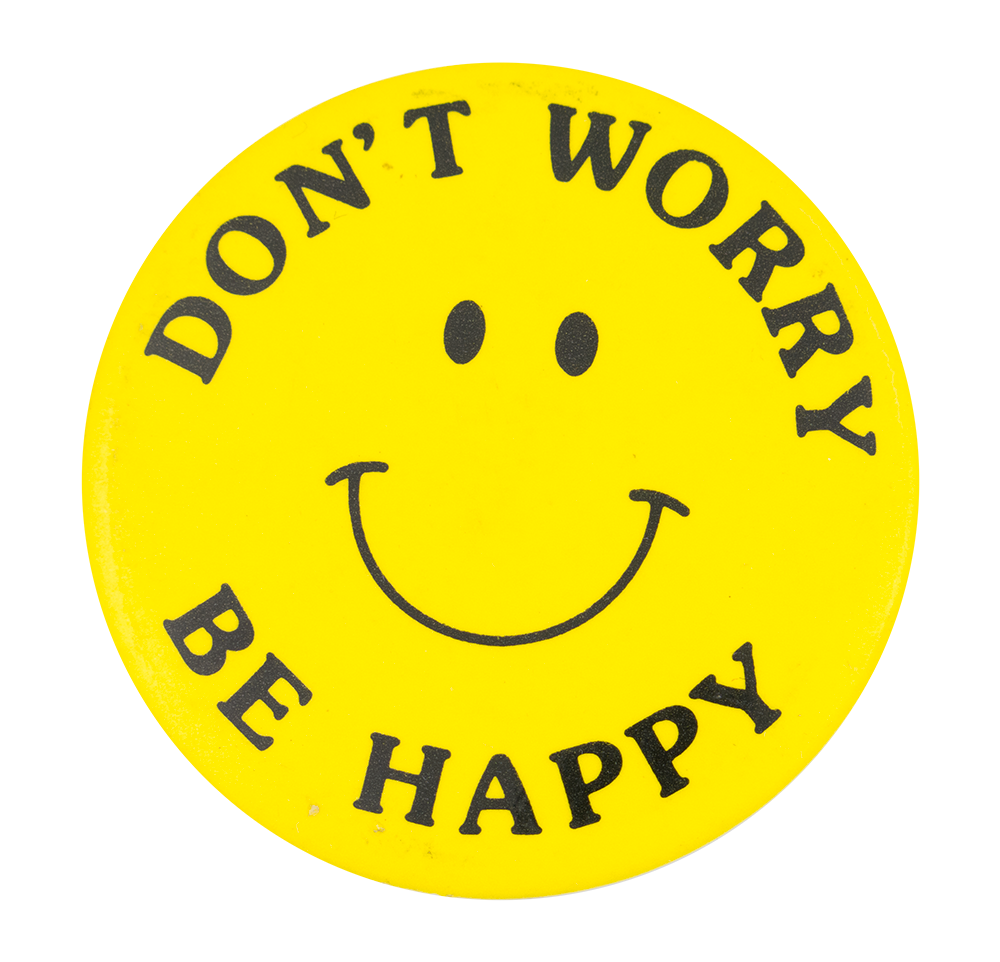
A lot of people like to read peppy little affirmations first thing in the morning. But some clients tell me that fluffy, hyperbolic one-size-fits-all platitudes feel like nothing more than false hype. That annoyance can make it difficult to absorb the words into your thoughts. Proving once again that we cannot fool ourselves – no matter how hard we try.
Phony affirmations on cute calendars, printed cards or sunset posters can foster a surprisingly prevalent myth: That it’s possible to “make” yourself (or another) feel better. News flash: You cannot “make” yourself feel anything, at least not in one single motion. Emotions and commands do not mix. You can’t simply tell yourself to be happy; you can’t tell yourself that life is great; you can’t tell yourself that all will be well. “Don’t Worry, Be Happy” is a song title and nothing more. Positive statements need proof and facts to back them up.
Conviction requires substance. Glowing, out-of-context statements come across more as a command or a duty, and as such you will understandably rebel against it. I’m not against affirmations in principle, and I’m not suggesting they’re always wrong. In fact, when you’re in a neutral or noncommittal mood, they can perhaps spark optimistic thoughts. But when you’re down or depressed, a pithy little bon mot will not be enough, and it’s most certainly not therapy.
Healthy thinking and a truly positive outlook come from working at it every day. I often suggest to clients that they spend a few minutes to review each day, then write down what they liked about the day and what they liked about themselves. Then note where there might have been improvement. Be objective and honest. Questions like, “What am I proud of myself for doing today?” and “Where did I exhibit my best self, or where did I let myself down?” can be powerful in helping to ground you in reality.
Doing this every day might not be the secret to mental health, but it builds the emotional muscle necessary to make affirmations or other attempts at “quick fixes” less relevant. And over time, you’ll be surprised at what a difference it can make in your emotional strength.
The basic issue here is living the examined life. Living is an ongoing experiment. As the years pass, you acquire certainty about particular things and you discover principles (i.e., general rules) that make sense. When you make note of these principles and keep track of them, they become your own because you know, from your experience, that they make sense and they work. This will make you less subject to the arbitrary commands of others or the (perceived or actual) wisdom of your social group or a little box of frilly cards from Hallmark.
We’re told that we need “faith”. Yes, that looks cute on a frilly card, but in fact it’s reason and experience we need above all. There’s no need to have “faith” that it will work; you KNOW it will work because you experienced it first hand.
People talk about not having a center. And the never-ending quest for self-esteem is well-documented. But what do these things really mean? To me, they mean taking your life seriously by applying what you learn every day, then repeating what works and throwing out what doesn’t.
There’s no shortcut here. Life is an ongoing and challenging expansion of your perspective, your knowledge and learning. Cute affirmations are fine, but they’re no shortcut to the examined life. And they will never replace reason and personal experience.
Follow Dr. Hurd on Facebook. Search under “Michael Hurd” (Rehoboth Beach DE). Get up-to-the-minute postings, recommended articles and links, and engage in back-and-forth discussion with Dr. Hurd on topics of interest. Also follow Dr. Hurd on Twitter at @MichaelJHurd1, @DrHurd on Gab, drmichaelhurd on Instagram and @Drhurd on Parler.
